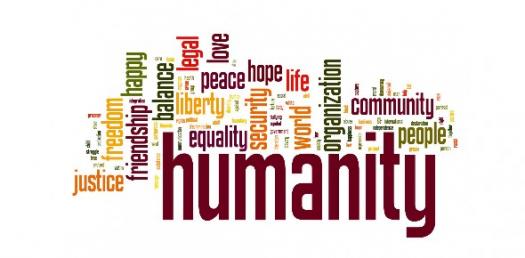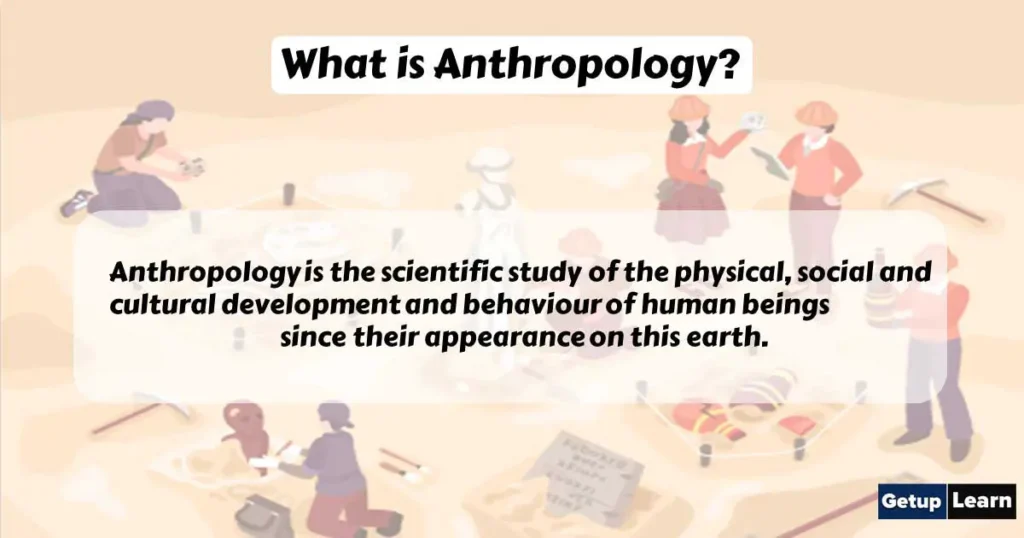The Significance of Understanding Humanity
Contents
Human beings are the adornment of the universe, the jewel of creation, and stand at the pinnacle of all divine creatures. The study and understanding of humanity is one of the most crucial elements in a comprehensive worldview. Since Islam represents the most complete version of divine guidance, it places exceptional emphasis on this subject.
Defining the “Science of Humanity”
The “science of humanity,” or anthropology in its broader sense, is the study and understanding of human beings. More precisely, any branch of knowledge that focuses on the general study of humanity or examines a dimension of human existence can be termed the “science of humanity.” Given the complexity of human beings, who possess numerous dimensions and varied aspects, it is impossible to study all these facets within a single scientific discipline. Therefore, every field of knowledge investigating a particular aspect of human existence is rightfully considered a branch of anthropology.
However, modern anthropology differs from what religious culture refers to as the study of humanity. In religious texts, the study of humanity is often described as the knowledge of the self. Here, humans are examined as beings with a higher purpose, capable of moving towards achieving lofty human goals, ultimate perfection, and true happiness. This can be attained through self-reflection and understanding the innate potential within one’s nature that leads to this ultimate goal. The study of humanity also delves into the stages of human creation, its parts, existential dimensions, capabilities, and powers.

The Importance and Necessity of Understanding Humanity
Anthropology is one of the most fundamental disciplines within the human sciences. Questions about God, humanity, and the universe are three of the most significant inquiries constantly occupying the human mind. In this context, the emphasis on understanding humanity and the necessity of such knowledge is of great importance. Human beings’ complexity and multifaceted nature have been foundational teachings in many philosophical, mystical, and divine schools of thought. Furthermore, the significance of anthropology extends to essential beliefs such as prophethood, resurrection, and even the belief in divine oneness, as it plays a vital role in explaining these core tenets.
Islam, in particular, places unparalleled importance on human knowledge, considering this type of understanding the most beneficial of all knowledge:
“The knowledge of the self is the most beneficial of all knowledge.”
On the other hand, ignorance of the self is regarded as the root of ignorance about everything else:
“Do not be ignorant of yourself, for the one ignorant of their own self is ignorant of all things.”
Why Seek Knowledge of the Human Being?
The importance of understanding humanity lies in the following aspects:
1. Self-Knowledge Determines One’s Purpose and Life Path
When faced with multiple choices or standing at a crossroads, a person must select one path and abandon others. To make the right choice, one must be aware of the true purpose for which they were placed in this world. Only then can they choose the path that leads to that goal and organize their life accordingly.

2. Self-Knowledge Leads to Knowledge of God
Knowing oneself is a path to knowing the Divine and a means of spiritual insight. Within each person are signs of God’s knowledge, power, and wisdom. No other creature mirrors the human being’s depth and complexity. Out of all creation, God chose humans to be His representatives on Earth, as He says:
“And when your Lord said to the angels, ‘I will place a vicegerent on Earth.'” (Qur’an 2:30)
Humans are also the manifestation of God’s names:
“And He taught Adam all the names…” (Qur’an 2:31)
Additionally, humans were entrusted with the divine responsibility that other creations refused:
“We offered the Trust to the heavens and the earth and the mountains, but they declined to bear it and were afraid of it; but man undertook it. Indeed, he was unjust and ignorant.” (Qur’an 33:72)
They were even deemed worthy of the angels’ prostration:
“And when We said to the angels, ‘Prostrate to Adam,’ they prostrated, except for Iblis; he refused and was arrogant and became one of the disbelievers.” (Qur’an 2:34)
Thus, humans are knowledgeable of all the divine names, and knowing oneself plays a significant role in understanding God. The Qur’an refers to this concept:
“On the earth are signs for those of assured faith, as well as in your own selves. Will you not then see?” (Qur’an 51:20-21)
In another verse, God says:
“We will show them Our signs in the horizons and within themselves until it becomes clear to them that this is the Truth. Is it not sufficient that your Lord is a witness over all things?” (Qur’an 41:53)
This verse specifically emphasizes the signs within the self. Similarly, God states:
“O you who believe, take care of your own selves. Those who go astray cannot harm you when you are rightly guided.” (Qur’an 5:105)
Thus, self-awareness is linked to awareness of God, just as forgetting oneself is tied to forgetting God.
3.Self-Knowledge Helps Diagnose Individual and Societal Ills
Understanding oneself enables a person to recognize their existential qualities and prevent the losses that may result from personal and societal challenges. For instance, many moral and social ills stem from limiting human existence to the material realm, leading to an emphasis on worldly pleasures as the ultimate goal. This perspective gave rise to theories that degraded the human being, lowering them to a base level, as described in the Qur’an:
“They are like cattle; rather, they are more astray in their way.” (Qur’an 25:44)
4. The Possibility of Prophethood
Belief in the existence of individuals who attain the rank of prophethood and divine mission is a dimension of understanding humanity. Throughout history, some doubted the possibility of a human being receiving divine revelation, arguing that if God wished to communicate with us, He would do so through angels. For example, when Prophet Noah (peace be upon him) was sent, people objected:
“This is but a man like yourselves who wishes to gain superiority over you. Had God willed, He would have sent down angels. We have never heard of this from our forefathers.” (Qur’an 23:24)
This objection stems from a belief that humans are unworthy of such a high responsibility, based on their limited understanding of human potential. However, a deeper understanding of humanity reveals that some individuals indeed possess the capacity to bear this divine responsibility. Who these individuals are and how many attain prophethood is a separate matter, but the possibility exists within the human species.
5. The Connection Between Knowledge of Humanity and the Hereafter
Belief in the afterlife is contingent upon recognizing that humans possess a soul, which can exist independently of the body. If one denies that the soul is a dimension of human existence, the concept of resurrection becomes illogical. If humans are solely physical beings, their complete decomposition upon death would make the idea of reviving the same individual irrational, as the resurrected person would not be the same as the original. However, the true understanding of resurrection is founded on the belief that, after death, the soul persists and will return to the body. Therefore, the concept of the afterlife hinges on knowing the human soul as a surviving, independent entity.
6. The Relationship Between Knowledge of Humanity and Morality
There is a close connection between self-knowledge and ethical matters. Without understanding the true nature of humanity, one cannot grasp the virtues a person can attain through noble ethics. Additionally, it becomes difficult to establish the correct standards for distinguishing between virtuous and corrupt behaviors.

The Advantages of Religious Anthropology
The Significance of Understanding Humanity
Each approach to the study of humanity has its own unique features, addressing different aspects of human life. However, it can be broadly stated that secular perspectives on humanity suffer from certain limitations and crises. Religious anthropology, on the other hand, is the only framework capable of truly defining human nature and essence, for it is the Creator who knows the human being better than anyone else. This form of knowledge of humanity is vital for advancing the human sciences, achieving human perfection, and fostering a civilized society. Compared to secular anthropology, religious anthropology offers the following advantages:
1. Comprehensiveness
Religious anthropology stands out for its comprehensiveness, as it relies on divine knowledge and is free from the limitations that afflict other fields. Even when focusing on a specific aspect of human existence, it maintains an integrated perspective, considering all dimensions of the human being. This is because the one who speaks about such matters possesses complete knowledge, addressing humanity in its entirety: “Does He who created not know, while He is the Subtle, the Acquainted?” (Qur’an 67:14).
Moreover, the study of religious anthropology clearly reveals that this approach considers all facets of human existence, encompassing physical, historical, cultural, worldly, and spiritual aspects, both actual and conceptual. In some of these areas, it uncovers truths that other anthropological approaches cannot reach.
2. Precision and Infallibility
Since religious anthropology is rooted in divine knowledge, which is free from error, it attains a level of precision and certainty that other forms of philosophical, mystical, or empirical human sciences lack. When religious anthropology is systematically based on divine revelation, its conclusions are strong and free from doubt or mistake. On the contrary, secular human sciences are prone to the limitations of human knowledge and, therefore, cannot be said to be completely error-free. As the Qur’an states, if the text were not from God, it would contain many inconsistencies:
“Do they not contemplate the Qur’an? If it had been from anyone other than God, they would have found in it much discrepancy.” (Qur’an 4:82)
Additionally, the Qur’an highlights the straight path it guides to, saying:
“Indeed, this Qur’an guides to that which is most upright.”(Qur’an 17:9)
3. Focus on Creation and the Hereafter
Secular anthropology often neglects the concepts of origin and afterlife, as seen in empirical anthropology and certain philosophical or mystical traditions. Even when these topics are addressed, they are discussed in a vague and imprecise manner, without explaining how humans should live and journey toward perfection. In contrast, religious anthropology treats origin and afterlife as the two fundamental pillars of human existence, elaborating in detail the connection between human life and these essential realities. This relationship is captured in numerous Qur’anic verses, including the concise expression of the human journey: *”Indeed, we belong to God, and to Him we will return.”* (Qur’an 2:156)
Key Concepts:
The Significance of Understanding Humanity
– Any study that examines human beings in a general manner or explores a specific dimension of human existence can be termed “anthropology.”
– The most profound questions in human thought revolve around God, humanity, and the universe.
– Self-knowledge is the path to recognizing the Divine, as the signs of God’s wisdom, knowledge, and power are reflected within the human being.
– Understanding oneself enables recognition of human characteristics and helps prevent personal and societal loss.
– Belief in the afterlife hinges on recognizing that humans possess a soul capable of existing beyond the physical body.
– Religious anthropology is the only approach that fully reveals human nature and essence.
– By drawing on divine knowledge, religious anthropology attains an unparalleled level of precision and certainty, setting it apart from other human sciences.

